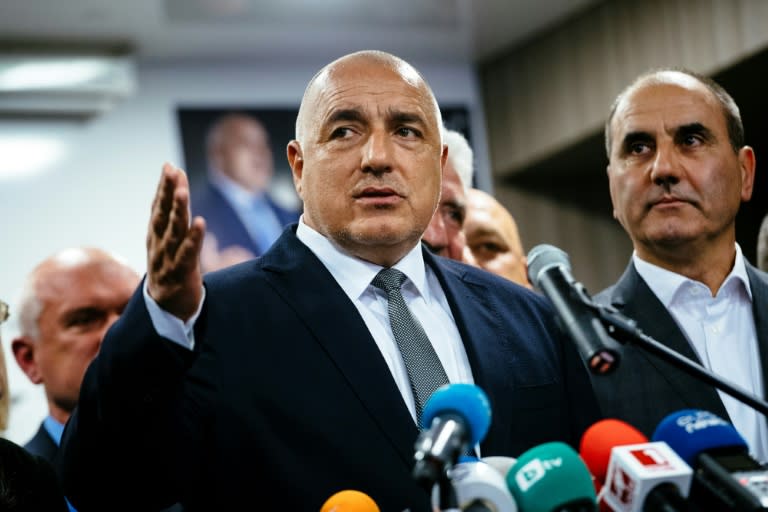Bulgaria's Borisov seeks third time lucky
Bulgaria's comeback king Boyko Borisov faced an uphill battle on Monday to build a stable coalition government following an election win that will see him crowned prime minister for a third time. His pro-EU centre-right GERB party won Sunday's snap election in the European Union's poorest country with 32.6 percent of the ballot. Official results showed GERB will hold 95 of 240 parliamentary seats -- 11 more than in the outgoing administration. The burly Borisov, a former firefighter and bodyguard, saw off a stiff challenge from the Moscow-friendly Socialist Party (BSP), which garnered 27 percent and more than doubled their MPs to 80. "Personally I am happy with the election results. It is important that the communists (Socialist party) will not be in power," restaurant owner Bozhidar Ivanov, 41, told AFP on Monday. But whether Borisov can form an effective government that stays the course, unlike his previous two attempts, remains to be seen. The 57-year-old has already ruled out a coalition with all parties except with a group of anti-immigration nationalists, although they may not back his anti-corruption reform plans. Once a bodyguard for Bulgaria's last communist leader and its ex-king, Borisov has long dominated national politics in the southeastern European state, serving as premier from 2009 to 2013 and again from 2014 to 2017. But both times he quit early, first in 2013 after mass protests and then last November after his candidate for the presidency was beaten by an air force commander backed by the BSP. Bulgaria, where the average monthly salary is just 500 euros ($540) and corruption is rife even after 10 years in the EU, has now seen three elections in the past four years. Borisov's reform efforts in office, in particular to meet Brussels' demands to tackle graft and organised crime, failed to get off the ground. In January Bulgaria takes up the rotating presidency of the EU, in the midst of negotiations with Britain on the terms of the latter's exit from the bloc. - 'Second-class' - A victory for the Socialists would have raised the prospect of a tilt toward Moscow in the NATO member state, home to 7.4 million people. Russia, which has long had close cultural and economic ties with Bulgaria, has recently been accused of seeking to expand its influence in other Balkan countries. BSP leader Kornelia Ninova had said she was not content with Bulgaria being a "second-class member" of the EU, and that she would veto an extension of sanctions imposed by Brussels on Moscow. But Borisov, too, said during the campaign that he wanted more "pragmatic" ties with Russia and to revive contentious joint projects. He also successfully portrayed himself as being able to preserve Bulgaria's status as an "island of stability" in an unstable Balkans region and amid tensions with neighbouring Turkey. "Borisov had the wonderful idea of being reassuring, of adopting the role of unifier, of conciliator," said political analyst Haralan Alexandrov. - 'Votes for sale' - The scourge of graft loomed over the poll, with prosecutors launching multiple probes into electoral fraud and television channels alleging sales of votes for as little as 15 euros. Voter apathy and disillusionment with the main parties were also widespread. In the campaign, Borisov ruled out a tie-up with the centrist Movement for Rights and Freedoms (MDL) party representing Bulgaria's Turkish minority which came fourth with around nine percent. Potential partners include the third-placed United Patriots, scoring just over nine percent, and Veselin Mareshki, a charismatic businessman who likes being called the Bulgarian Donald Trump. Results have yet to confirm whether Mareshki's party, Volya ("Will"), has cleared the four-percent hurdle needed to gain seats in parliament. Observers say the United Patriots could hurt GERB's ties with its allies in the European Parliament. "The European People's Party will be concerned if GERB enters a coalition with the nationalists," said analyst Andrey Raytchev.



